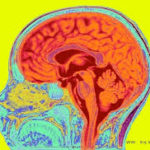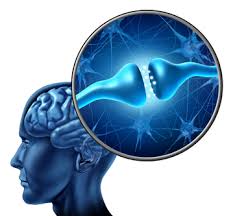What are Neurotransmitters?
There is a very large network of specialized cells that make up your nervous system. The average human brain houses over 100 billion nerve cells (neurons) with each connected to 10,000 or so other cells. Everything we do – all of our movements, thoughts, and feelings – is the result of these nerve cells talking with one another via electrical and chemical signals.
Neurons are not in direct contact with each other; in order to communicate with each other, they rely on chemicals called neurotransmitters. Neurotransmitters are chemical messengers that coordinate the transmission of signals from one nerve cell to the next. These neurotransmitters regulate a wide variety of processes including emotions, fear, pleasure, joy, anger, mood, memory, cognition, attention, concentration, alertness, energy, appetite, cravings, sleep, and the perception of pain.
There are a number of studies that have measured the effects of meditation on the “feel good” neurotransmitters and today we will talk about just five of the many neurotransmitters that meditation affects in a positive way.
1. Serotonin. Known by many scientists as the “happy” neurotransmitter, serotonin is key to helping relay signals from one part of the brain to another. This crucial chemical has a profound impact on our mood, contributing greatly to our overall state of well-being. When we don’t have enough we are depressed and when we have enough we have a sense of well being. A number of studies show that meditation such as mindfulness increases serotonin.
2. Endorphins. Endorphins are the “feel good” neurotransmitter. Perhaps the most widely known, endorphins are most associated with exercise. Runner’s “high” is a common effect and similar descriptions have been given to many other activities in the exercise category. Mindfulness meditation studies have shown increases in endorphins after meditation and at higher levels than exercise.
3. GABA. GABA (gamma aminobutyric acid) is one of the major inhibitory neurotransmitters in your central nervous system. GABA is the neurotransmitter that is associated with feelings of calm. Not having enough of this chemical can create problems including anxiety, nervousness, racing thoughts, and sleeplessness. In 2010, Psychiatrists at the Boston University School of Medicine found a 27% increase in GABA levels after only 60 minutes of mindful meditation
4. DHEA. Although DHEA is technically a hormone, it acts directly on neurotransmitter systems to regulate synaptic transmission. When in a balanced state, the presence of DHEA facilitates what we call the “longevity molecule”. Meditation stimulates the correct amount of DHEA which in turn puts us in a position to take advantage of the “DHEA effect”. In fact, by measuring DHEA in the body we can more accurately measure “true age”.
5. Cortisol. Cortisol is a crossover between a hormone and a neurotransmitter. It is considered to be related to stress and whether it is acting as a hormone or a neurotransmitter if you have too much then you will experience high levels of stress. Meditation lowers cortisol and mindfulness meditation has been seen to reduce cortisol levels over a period of a few weeks.


